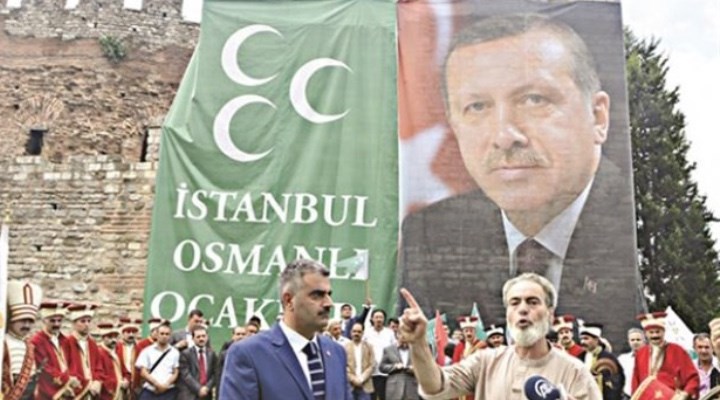According to a column published by former AKP MP and presidential speechwriter Aydın Ünal argues that the early republic “fastened its very first button wrong,” locking the young state into a narrowly secular, ethnically defined concept of citizenship and silencing alternative views through an ideological reading of laïcité
Ünal traces the fault-line to the opening sessions of the Grand National Assembly in May 1920, when deputies still spoke of an “Islamic aggregate” rather than a single Turkish nation. Yet within little more than a decade, he contends, intellectuals such as Yusuf Akçura and Moiz Cohen (alias Munis Tekinalp) had helped recast the republic’s identity project in racial terms. The subsequent embrace of the Sun-Language and Turkish History Theses, together with the erasure of religion from the public definition of belonging, “created an advantaged stratum of ‘whitened Turks’ who filled the cities and state cadres,” Ünal writes.
Historians largely agree that the homogenizing policies of the 1930s coincided with forced surname adoption, restrictions on Kurdish and other minority languages, and economic privileges for a new secular bourgeoisie. While the Kemalist establishment celebrated rapid modernization – immortalized in the Tenth-Year March’s boast of having “created fifteen million youth” – Anadolu’s “black Turks” and predominantly Sunni Kurdish villagers were left confronting poverty, cultural degradation, and, in later decades, insurgency.
Those grievances reshaped the ballot box once Turkey transitioned to multi-party politics in 1950. Rural Anatolia and the southeast propelled Adnan Menderes’s Democrat Party, and later a succession of center-right movements, to power in what Ünal calls a “permanent revenge vote.” The electorate’s polarization hardened after the 1980 coup, when the military itself experimented with a “Turkish-Islamic synthesis” in hopes of diluting both left-wing and separatist currents.
Erdoğan’s political journey, rooted in that synthesis, now seeks to formalize Islam as the country’s “upper identity.” “If you leave faith outside the common denominator, you manufacture coups, terror and economic crises,” he warned party cadres on Sunday, inviting opposition leader Özgür Özel’s instant retort that “sectarian politics will yield you no dividends.”
Analysts see two immediate implications. First, the president’s call resonates with Nationalist Movement Party (MHP) leader Devlet Bahçeli, whose base already speaks in “Turkish-Islamic” language. Second, it coincides with the Kurdistan Workers’ Party’s waning influence; a post-PKK environment could, in theory, allow conservative Kurdish voters to rally around a shared religious identity rather than ethnicity.
Yet obstacles remain formidable. Urban secularists fear that redefining citizenship around religion threatens both women’s rights and non-Muslim minorities. Moreover, Turkey’s 1982 constitution still enshrines the word “Turk” as the universal legal label for all citizens, a clause that has survived repeated amendment packages.
Whether Erdoğan can unlock what Ünal calls the “laiklik (secularism) padlock” without deepening existing divides may determine the trajectory of Turkey’s second century. For now, the debate he reopened at Kızılcahamam has reminded the country that its foundational question—Who, or what, is a Turk?—is far from settled.
Photo: Birgün
